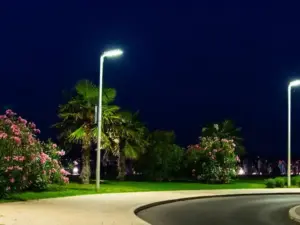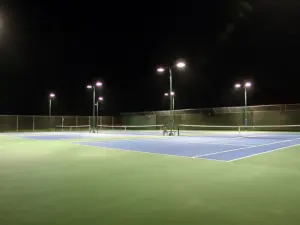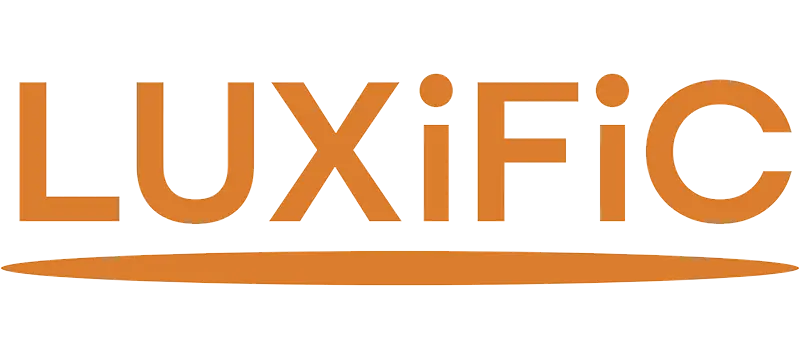导言:
Today, the lighting industry is a powerful force that provides illumination to homes and streets and a feeling of security through the multitude of light fixtures available for diverse uses. Among these fixtures are LED flood lights, versatile and powerful lighting solutions that offer a wide range of applications. These lights are popular in several industries and settings because they provide broad, intense, and uniform illumination over a wide area. What are flood lights used for? In this article, we shall explore the topic.
What is Flood Lighting and Where is it Used?

Flood lighting is a type of lighting solution that utilizes broad-beamed lighting devices called flood lights to emit intense artificial illumination over a large area. This kind of lighting is common in vast commercial environments and floods the place with consistent brightness. Flood lights are suitable for places that demand adequate lighting throughout their working hours, such as parking lots, construction sites, stadiums, open fields, and shipyards.
Before the creation of floodlights, large spaces used mainly Halogen flood lights or HID (high-intensity discharge) lamps to brighten their environs, now, however, LED floodlights are gradually replacing conventional lighting systems and becoming a general favorite due to their efficiency and long-lasting characteristics.
What are Flood Lights Used For?
The use of floodlights varies across different industries and settings. They come in halogen, HID, CLF, and LED variants and are suitable for outdoor lighting, security, and other specific applications. Flood light applications differ and offer unique benefits regardless of the type and size. These include:
1. Security Lighting
When asked, “What are flood lights used for?” one of the first things that pop into your mind includes providing security. Floodlights play a vital role in security systems, especially in motion detection, as they provide clear visibility around private property, which in turn deters criminal activities by startling intruders with a sudden burst of light.
2. Architectural and Monument Lighting
Architectural structures and monuments improve the worth of an area. Some even represent a country’s history, culture, and pride. Therefore, there is an unavoidable need to highlight their historical splendor, especially at dusk, with perfect lighting and techniques (wall-washing and accenting). Floodlights, particularly the LED variants, are the best lighting for such constructions.
3. Commercial and Industrial Applications
Flood lights illuminate various commercial and industrial settings such as warehouses, manufacturing plants, and construction sites. They create a well-lit workspace with their intense light that helps workers perform their tasks safely and efficiently even in the dark.
4. Sport Arena Lighting

The most recognized use of floodlights is the brightening of nightly sports events. For sports fans especially, if asked, “What are flood lights used for?” this application will most likely be your first answer. Flood lights make it possible for spectators to enjoy their favorite events and allow players to perform without hindrance. This is thanks to the even and intense light from flood fixtures that eliminate shadows and create a well-lit environment.
5. Outdoor Lighting
Another common use of flood lights is outdoor lighting. These lights brighten gardens, backyards, and outdoor sports facilities efficiently by eliminating shadows and making outdoor spaces more accessible at night.
Benefits of LED Floodlights
LED variants are the most popular among all kinds of flood lights due to their efficiency, cost-effectiveness, and long-lasting quality. LED floodlight users reap certain benefits that other kinds of lights fail to provide.
Below are some LED flood light benefits that make them a convenient modern lighting solution.
1. Longevity
LED flood lights have long lifespans and often last for up to a duration of 50,000 hours or more. It wouldn’t be a stretch to call them the vampires of the lighting industry, since they last up to ten times longer than other filament or gas-based lights. The longevity of LED lights eliminates the need to change bulbs frequently, thereby reducing maintenance expenses and making them cost-friendly in the long run.
2. Eco-friendly
Due to the low energy and minute carbon print that an LED flood light uses, it is considered to be an environmentally friendly alternative to other flood light variants. LED fixtures are devoid of toxic materials like mercury, glass and lead, making them a safe option for users and the environment.
3. Controlled Emission of Heat
Flood lights in general are one of the lighting industry’s most powerful devices. Due to the nature of their primary objective (illuminating a large space), these appliances require large amounts of energy to function effectively.
As a result of the accumulated energy, there is an intense generation of heat, which contributes to an increase in temperature in the surrounding area. The heat from these devices leads to self-damage by making their components more vulnerable to spoilage.
This dilemma eases up, however, with the use of LED lights. Many LED fixtures come with active thermal management systems that limit heat emission and conserve electricity to the maximum. This unique feature allows LED flood lights to produce superior lighting while utilizing the least amount of energy.
4. Energy Efficiency
LED floodlights are widely known to be energy-efficient electrical devices. These lights perform much better than other lighting solutions, offering superior illumination with minimum power usage. Experts in the lighting community state that LED floodlights are one of the most convenient electrical devices, supporting extensive usage and low maintenance costs.
5. Cost Efficiency
Because LED lights permit lesser electricity consumption, are low maintenance, and last for a long, they help users save money as time passes. These devices are also unaffected by weather and temperature changes and emit little heat, thus making them the safest lighting solution.
